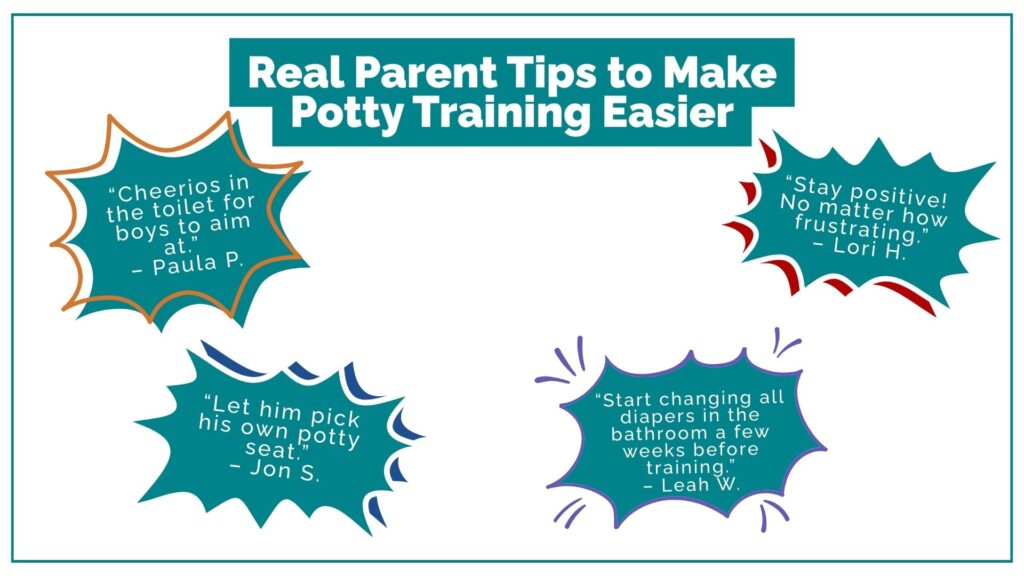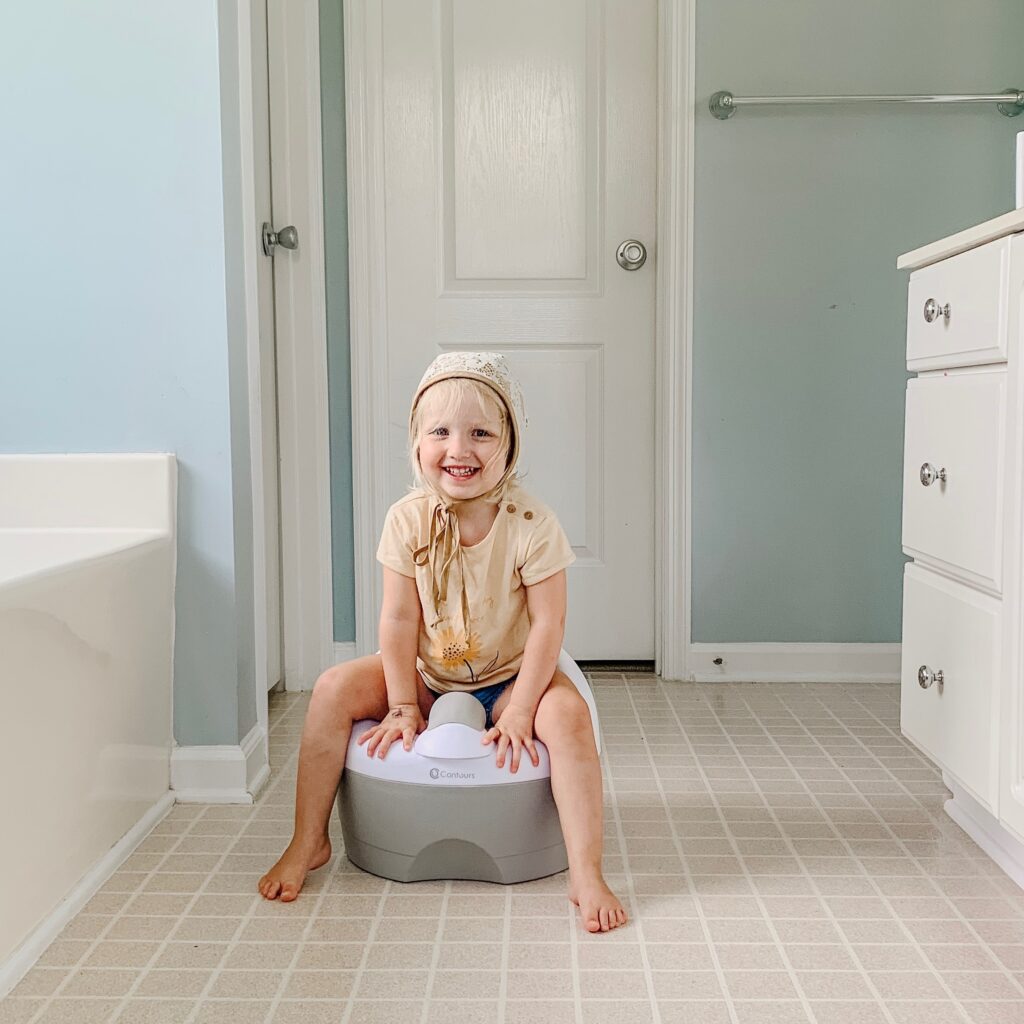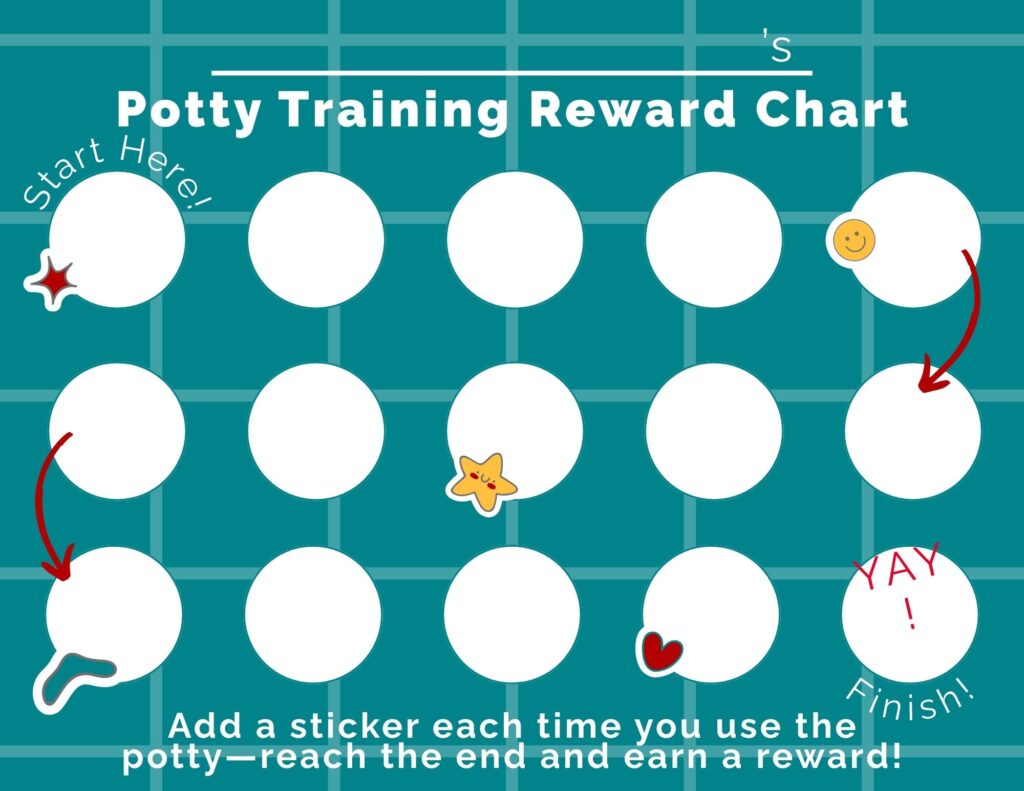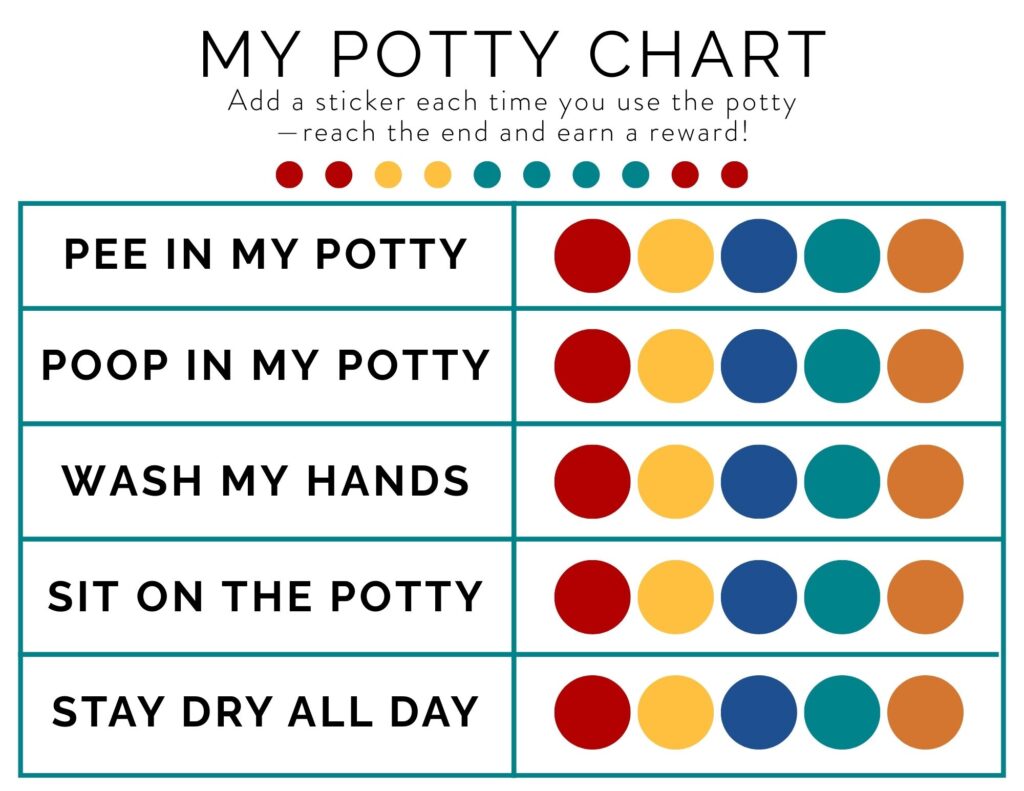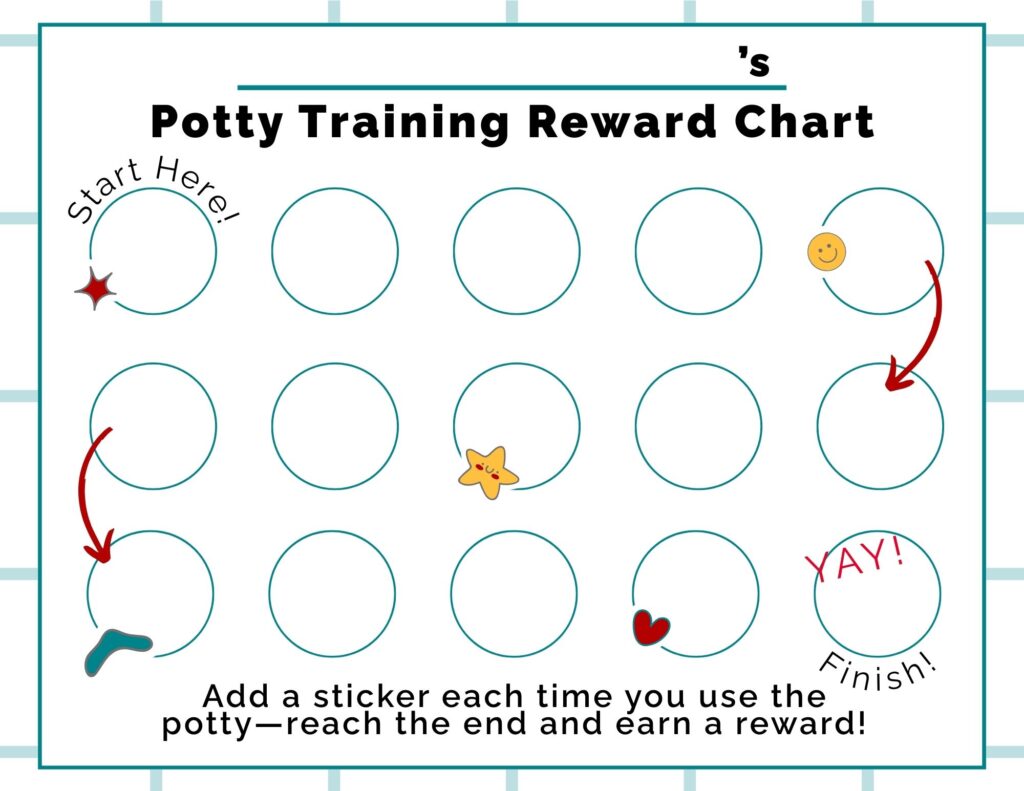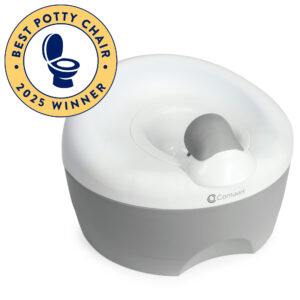After researching and reviewing some of the best potty training resources out there, we’ve compiled a list of helpful tips and tricks to make your potty training journey a success!
Let’s start with the first questions many parents have, when is it time to start potty training? What age does it all begin? First, every child is different! There is no “right age” for when it comes to potty training. You know your child the best, and you and your child might sense when the time is right. Instead of focusing on age, focus on signs that your little one is getting ready to start potty training.
What are some of the signs of readiness? Here are some key features to look for when they are ready for potty training:
- They might show interest in learning to use the potty and want to be more independent.
- They can understand and verbalize words about using the potty.
- They can follow simple instructions and like to copy your behavior, including bathroom habits.
- They can keep their diaper dry and clean for at least two hours.
- They can get on the potty, stay on the potty long enough to either poop or pee, and get off the potty.
And so much more! Look for the little things that might make them ready for this.
How do you make this experience more enjoyable for you and your little one? Tackling some of these pre-potty-training steps can help your child familiar themselves with the bathroom and what they need to do. Here’s what you can do to prepare your child for potty training:
- Get the perfect potty before you start this journey! The Contours Bravo® is an easy-clean, 3-stage potty trainer that makes potty training simpler for both parents and toddlers. Starting as a potty seat, the Bravo® features a unique, extra-wide and high splash guard to help keep messes contained.
- Get comfortable using words like “pee” and “poop” to familiar your child with what’s happening.
- Show your child step by step how to use the potty. This can include walking up to it, sitting down, standing up, and flushing. Modeling each action helps toddlers understand the process and feel more confident as they learn.
